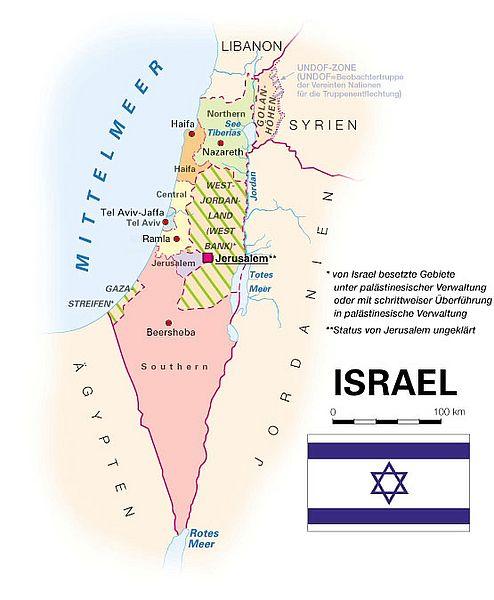Israel has demanded the withdrawal of a United Nations agency responsible for Palestinian affairs as a precondition for halting its military operation in the West Bank city of Jenin, according to reports. The escalation comes amid intensified clashes between Israeli forces and Palestinian militants, drawing international concern over rising violence and humanitarian conditions. The move underscores the deepening tensions surrounding the UN’s role in Palestinian territories and raises questions about the future of diplomatic engagement in the region.
Israel Insists on UNRWA Withdrawal as Condition to Halt Jenin Military Operation
Israel has set a firm stipulation for ceasing its ongoing military operation in Jenin: the withdrawal of the United Nations Relief and Works Agency for Palestine Refugees in the Near East (UNRWA). Israeli officials argue that the agency has become a focal point for militant activities, claiming that its facilities and resources have been exploited by armed groups in the densely populated West Bank city. This demand comes amid escalating clashes and a broader debate over the future presence of UNRWA in Palestinian territories, igniting tensions between Israel, Palestinian authorities, and the international community.
Key concerns raised by Israel include:
- Alleged use of UNRWA facilities as cover for militant operations
- Security risk posed by the agency’s continued presence in conflict zones
- The need to assert stronger control to prevent future attacks
| Stakeholders | Position | Implications |
|---|---|---|
| Israel | UNRWA removal as precondition | Continued military pressure |
| Palestinian Authority | Rejection of demand | Fueling diplomatic stalemate |
| International Community | Calls for dialogue | Risk of humanitarian impact |
The Palestinian leadership has condemned the demand, warning that such a move could exacerbate humanitarian crises among the refugee population dependent on UNRWA’s services. Meanwhile, global actors stress the importance of preserving humanitarian aid and dialogue to prevent further destabilization across the region. As the deadline for the operation’s end looms, negotiators grapple with this entrenched obstacle, which now shapes the trajectory of peace efforts in Jenin and beyond.
Impact on Palestinian Civilians and UN Agency’s Role in Conflict Zones
The ongoing Israeli military operation in Jenin has had a profound impact on Palestinian civilians, exacerbating humanitarian challenges in an already volatile environment. Residential areas have borne the brunt of the conflict, with widespread damage to homes, infrastructure, and essential services. Displacement rates have surged, as families seek refuge from the violence. The psychological toll on children and vulnerable groups remains a critical concern, as witnessing repeated confrontations leaves deep scars within affected communities. Local health facilities are overwhelmed, struggling to provide adequate care amidst shortages of medical supplies and safe access.
In this context, the United Nations agency for Palestinians plays a vital role by providing crucial humanitarian assistance, protection, and advocacy. The agency facilitates the delivery of food, water, and shelter, while also documenting violations to hold parties accountable. Despite calls for its removal by Israeli authorities as a precondition to cease military actions in Jenin, the agency’s presence is often viewed as indispensable by Palestinian civilians, who rely heavily on its support.
- Emergency medical aid: support for hospitals and frontline clinics
- Psychosocial services: counseling and trauma relief for displaced families
- Protection monitoring: documentation of rights violations
| Metric | Before Assault | Current Status |
|---|---|---|
| Displaced Civilians | Approx. 3,000 | Over 15,000 |
| Health Facilities Operational | 12 | 5 |
| UN Agency Aid Deliveries | Daily | Restricted |
Diplomatic Responses and Calls for Mediation to Resolve Jenin Crisis
International actors have responded swiftly to the escalating situation in Jenin, urging all parties to exercise restraint and prioritize diplomatic engagement. Several governments and global organizations have called for immediate mediation efforts to de-escalate tensions, highlighting the critical need for dialogue amid rising violence. In particular, accusations from Israel demanding the removal of the United Nations Relief and Works Agency for Palestine Refugees (UNRWA) have intensified diplomatic wrangling, with critics arguing that such a move could undermine essential humanitarian support in the region.
Key diplomatic interventions include proposals for a third-party mediation framework aimed at fostering communication between Israel and Palestinian representatives. The following table summarizes the main international responses and their focus areas:
| Organization | Response | Focus |
|---|---|---|
| United Nations | Call for ceasefire and humanitarian aid access | Protect civilians |
| European Union | Support for mediation and dialogue | Conflict resolution |
| Arab League | Condemnation of military operations | Regional stability |
| United States | Encouragement of direct talks | De-escalation |
- Emphasis on humanitarian considerations amid military actions
- Calls for accountability regarding violations of international law
- Backing enhanced monitoring to ensure aid delivery
These diplomatic overtures reflect a growing consensus that sustainable peace cannot be achieved without addressing both immediate security concerns and the broader political and humanitarian dimensions fuelling the crisis.
The Way Forward
As the conflict in Jenin continues to escalate, Israel’s insistence on the removal of the United Nations agency for Palestinians underscores the deepening tensions between Jerusalem and international bodies involved in the region. With no immediate resolution in sight, the standoff highlights the complex challenges facing efforts to restore calm and protect civilian lives amid ongoing hostilities. Observers and stakeholders alike will be closely monitoring developments, as the situation remains a critical flashpoint in the broader Israeli-Palestinian conflict.
